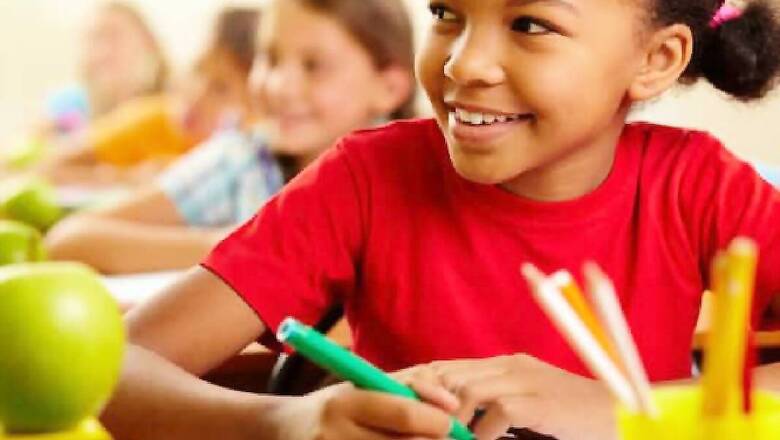
views
The COVID-19 virus has taught us many lessons. The most important is to accept ambiguity and inculcate the ability to adapt to change. Last year around this time, children, teachers and other professionals quickly learned the concept of work and study from home. Our bedrooms and living rooms became our offices, schools and classrooms. Social connections shifted from being three-dimensional to two-dimensional. We adjusted, accommodated, adapted and embraced these changes.
Then, early this year we saw some hope. With a drop in the number of COVID-19 cases, we opened schools with the hybrid system, offices were opened at limited capacity, markets were slowly buzzing with people, children were allowed to go down to the parks—life seemed to be slowly returning to ‘normal’. However, the past month has shocked all of us into retreating back into our homes with even more fear and anxiety than before. Once again, life as we know it has come to a halt. Along with this, there is the news of family members, friends, and acquaintances being diagnosed with COVID-19 every single day. As a society, we are facing collective grief, loss and panic.
In the middle of this chaos, we worry about our children. Not only their physical health, but also their mental health and emotional well-being. No matter how much we want to protect them by keeping them away from social media or the news, the pandemic has found its way into everyone’s thoughts and feelings.
Children are sensing the panic in the air, their lives and routines have turned upside down and many have seen COVID-19 very closely in their homes. Just like adults, our children are also feeling worried and anxious. While we struggle to keep ourselves calm, how do we help them cope?
1. Identify the signs: While some of us can express easily, our young ones may often find it difficult to express their worries. For some, anxiety may manifest in the classroom as lack of focus and concentration, for others it may show up as separation anxiety in the form of not wanting to spend time alone or wanting to sleep with parents, while some may experience lack of appetite or change in sleeping patterns (either excessive sleeping or sleep disturbances). Behaviours that seem regressive in nature such as bed-wetting may also be a sign of anxiety. Excessive irritability, fidgetiness or what we call ‘meltdowns’ may also be linked to the pandemic. As parents and teachers, we have to closely look out for any of these behaviours that may have developed specifically during the pandemic. Recognizing their emotions and responding in a sensitive and effective manner is the need of the hour.
2. Listen and Respond: Be responsive rather than reactive. Reactions like “nothing will happen” or “it will be okay” or “there is nothing to worry about”, often end up invalidating the child’s experience rather than offering comfort. With older children, conversations about the risks and benefits, stressing on the protocols and giving them the space to express all their fears may be more useful. For younger ones, age-appropriate conversations along with co-constructing coping strategies can be very effective. To facilitate these conversations, our school, for instance, offers regular circle time with the school counselors, focusing on processing and coping with anxiety during the pandemic. For many children, having a sensitive, validating listener is very useful.
3. Providing creative outlets: Play, journaling, art, music, dance and poetry are great outlets for big, difficult, unprocessed emotions. Sometimes, what seems like an ordinary building made of blocks or a random scribble on a piece of paper may be an expression of the child’s innermost feelings. Journaling for older children, creating worry jars for younger ones can help children process their anxiety.
4. Structure and Consistency: While this one may seem difficult during the pandemic with the situation changing every day, it is important to provide as much consistency as possible. Consistency is important for younger and older ones alike. While children in middle and senior school may be more flexible to changes in structure, consistency provides a sense of safety to all children.
5. Individual Support: Each child is different. Your younger and older one may be responding very differently to the pandemic. It is also possible that while both may experience anxiety, they may show different signs and accordingly may need different coping strategies or help. It is important not to compare one child’s comfort level to another. Treat children as individuals and provide support according to their unique needs. From my experience of conducting individual counselling sessions, I noticed the importance of offering students an individualized and trusting space to express their concerns and offer them help and guidance to deal with their challenges.
6. Give them some control: As children lose control over the outside environment, it may help to give them some control within the household. Give them choices and help them make their own decisions in an age-appropriate manner. Having some amount of control over things can significantly reduce anxiety.
7. Learning: To help our children, it is important we first learn ourselves. During the lockdown, parents and teachers struggled with understanding the changing behaviours of the children. To help tackle that, our school began offering online workshops and circle times for teachers and parents where they could discuss their own struggles as well as learn strategies to re-connect with the children during this difficult time. Other ways of enhancing one’s parenting abilities could be through reading self-help books or attending workshops.
We all understand that there is no single solution to a problem or a specific strategy that helps everyone in the same way. However, it is important for educators and parents to be keen observers and respond to changing behaviours in a sensitive and informed manner.
Read all the Latest News, Breaking News and Coronavirus News here. Follow us on Facebook, Twitter and Telegram.




















Comments
0 comment